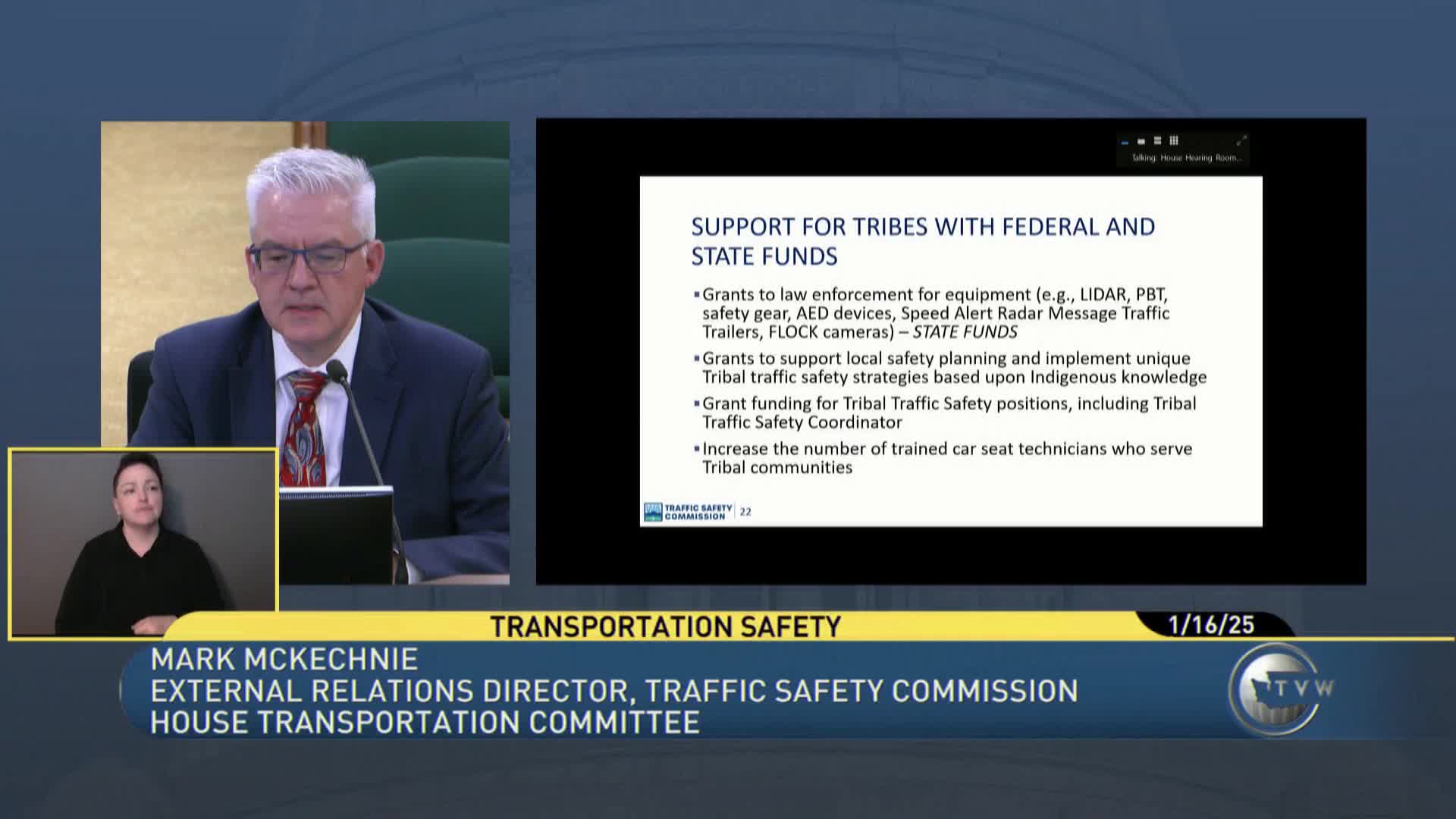Commission reports proviso‑funded DUI enforcement and launches ignition‑interlock pilot to close compliance gaps
Get AI-powered insights, summaries, and transcripts
Subscribe
Summary
The Traffic Safety Commission said 2024 supplemental provisos funded high‑visibility enforcement shifts, tribal traffic‑safety grants, and a pilot in Yakima County to study ignition‑interlock compliance and barriers to relicensing after DUI convictions.
The Washington Traffic Safety Commission told a legislative committee that supplementary state funds were used in 2024 to expand high‑visibility DUI enforcement, to award tribal traffic‑safety grants based on identified needs, and to finance a pilot in Yakima County focused on improving ignition‑interlock compliance.
Mark McKechnie and Shelley Baldwin described how proviso funds addressed three areas: equipment and capacity grants to tribal police departments, supplementary funding to fill gaps in federally funded high‑visibility patrols, and a pilot to examine barriers that prevent people with DUI convictions from obtaining required ignition interlocks.
The commission summarized preliminary results from the high‑visibility enforcement program: 333 enforcement shifts, 184 DUI arrests (the presentation said this represented roughly 10% of all infractions encountered during those shifts), and a substantial share of infractions related to speeding. The commission said two city police departments (Yakima and Spokane) received grants to support dedicated DUI‑focused positions; Yakima’s preliminary four‑month data showed a significant number of DUI arrests linked to the funded position.
Baldwin said Washington’s ignition‑interlock law is robust but under‑used: the commission estimates the number of active interlocks in the state covers only about 30% of people with DUI convictions, leaving an enforcement and public‑safety gap. The Yakima pilot works with district court and probation partners to identify where people are blocked from receiving an interlock license — for example, because they lack a valid license or cannot complete relicensing steps — and to test measures such as increased probation supervision or alternative monitoring to improve compliance and relicensing pathways.
Committee members raised related concerns: Representative Lohr cited testimony from the State Patrol that toxicology testing backlogs remain substantial (the transcript referenced thousands of untested kits and a backlog measured in many months). Representatives also asked about financial barriers and whether indigent defendants receive interlock subsidies; the commission said subsidies are available but that relicensing processes and other administrative barriers can still prevent installation and compliance.
The commission said tampering with interlocks does occur but noted that devices with camera and GPS features provide monitoring and that interdiction is feasible for people actively on the interlock program. The pilot aims to produce lessons for other jurisdictions about how to improve interlock uptake and reduce post‑DUI driving without a required device.
